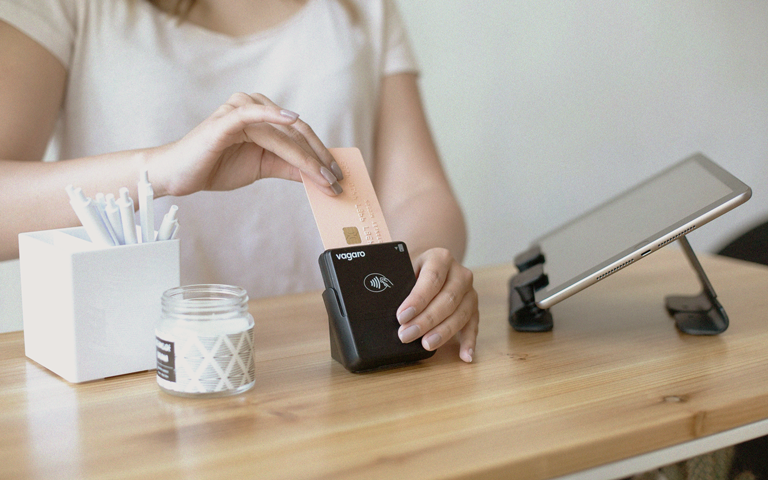Setting up a business bank account makes it official: You’re in business! Keeping your personal and business transactions separate is essential to tracking and managing your finances. It makes tax preparation easier, too.
Whether you’re a sole proprietor, an LLC, or a small business with big dreams, you’ll need a business checking account and other services. From choosing the right bank to selecting and opening accounts, it’s an important step toward success.
Why business bank accounts matter
“Dishonest money dwindles away, but whoever gathers money little by little makes it grow.“
[Proverbs 13:11 (NIV)]
The Bible has over 2,000 verses about money—twice as many as verses about prayer and faith combined! Scripture emphasizes the importance of money and the dangers of misusing or idolizing money.
Christians can’t serve both God and money (Matthew 6:24). We’re stewards of all God’s gifts, including money. Faithful Christian-led enterprises aren’t about get-rich-quick schemes or dishonest business practices. Most faith-based businesses will grow – little by little – to reach business goals while serving and glorifying God.
A business account is just one of many practical and valuable business tools. Clear and accurate records will help you keep your business on the right track.
Advantages of a business banking account
When you launch your business, a business bank account establishes a professional presence. Customers can pay your business instead of you. This helps enhance your brand while building relationships and trust. Other business account advantages include:
- Personal protection. Business banking accounts offer limited liability protection.
- Purchasing potential. You can put large purchases on your business credit card. This provides a record of transactions for accounting and tax needs. It also establishes a credit history for future financing options.
- Credit line flexibility. Many business banking accounts include an optional line of credit. You can use this for emergency or big-ticket expenses.
How many bank accounts should you have?
Your business account choices depend on your preferences and financial goals. Most entrepreneurs start with a checking account. Account options include:
- Business checking account
- Business savings account
- Business credit card
- Merchant services account – allows you to accept credit and debit card payments
- Payment processing account – an alternative to merchant services that sometimes includes credit card payment through your phone when it’s linked to a business checking account
How to choose a bank
To set up a business bank account, shop around for banks that offer business accounts with related services and support. Most small business owners select full-service banks for convenience, services, and advantages such as multiple-account discounts.
However, you may choose to work with more than one bank if you find additional deals, such as a low-rate credit card or high-rate savings.
If you’re happy with your personal bank, ask about their business account offerings. Compare rates, fees, special offers, and other options to those of other banks. Then choose the account that best suits your needs and business goals.
“Dishonest money dwindles away, but whoever gathers money little by little makes it grow.” – Proverbs 13:11 (NIV)
How to set up a business bank account
To open a business bank account, you can go online or visit a local banking office. Take time to gather the documents you’ll need. Application processes and requirements vary. These will depend on the financial institution, the size and nature of your business, the type of account or accounts, your state, and other factors.
Documents needed to open a business bank account typically include:
- Personal identification – Most banks require one or more forms of personal ID, which may include two or sometimes three government-issued IDs. These commonly include:
- Birth certificate
- Driver’s license
- Legal residency card
- Military ID Passport or passport card
- Social Security card
- Personal information – This includes your date of birth, phone, and mailing address. Any additional business owners will need to provide IDs and personal information.
- Business tax Identification number – You’ll need an Employer Identification Number (EIN). Learn more about EINs and how to get an EIN. If you’re a sole proprietor or have a single-member LLC, your Social Security number may be all you need.
- Business documents – Provide your business name, address, and “doing business as” (DBA) information if applicable. Other details needed include the type of industry and business structure (sole proprietorship, LLC, partnership, or corporation). Provide business-formation documents, a business license, a partnership agreement, and articles of incorporation documents if applicable.
- Opening deposit – For business checking and savings accounts, most banks require an opening deposit ranging from $25 to $1,000 or more.
Your small business account: the start of something big!
Opening a business bank account is easy once you do your homework and gather your documents. Don’t wait to get started. From day one, having a professional business account ensures that you’re ready to “gather money little by little and make it grow.” (Proverbs 13:11).

Healthcare options for small businesses?
It shouldn’t be overwhelming—or break the bank.
Learn how CHM has helped entrepreneurs with excellent, budget-friendly healthcare since 1981.




